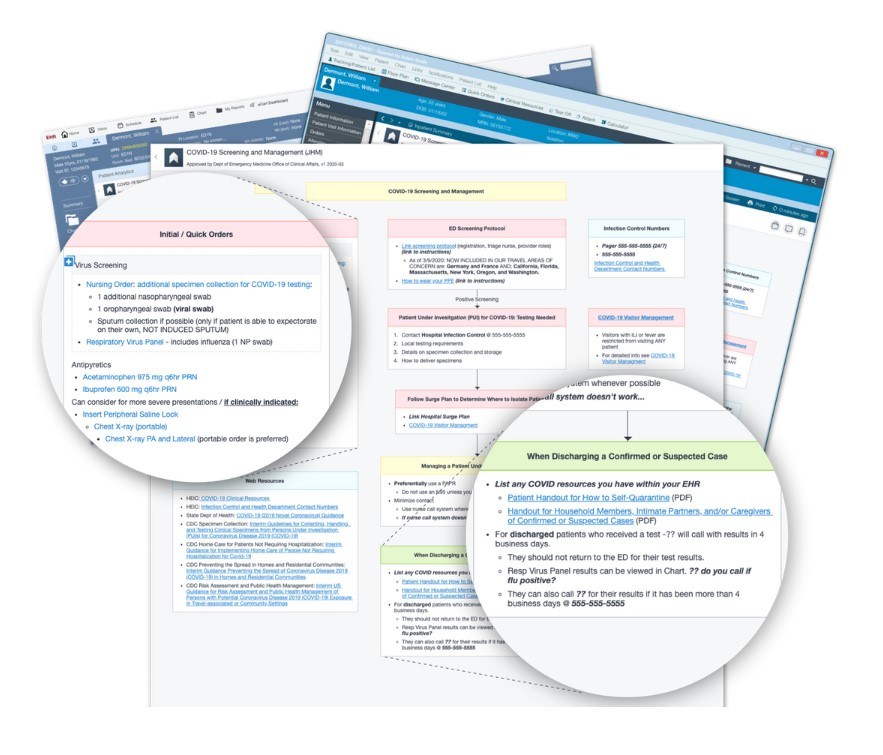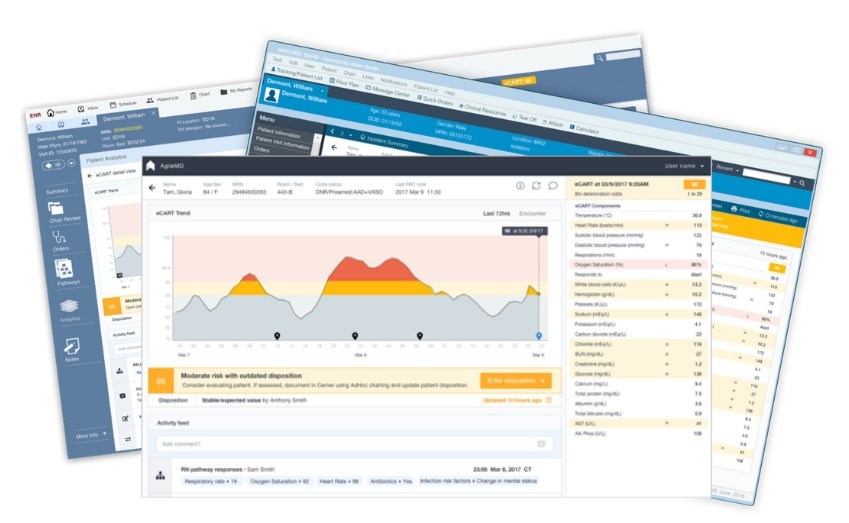AgileMD Uses AI to Decide Who Lives or Dies with COVID

AgileMD is an electronic health record tool that can help health care workers triage patients, assess risk, and determine workflows for testing. Due to the COVID-19 pandemic, the AgileMD software is being used more than ever before. Can they prove their value during the pandemic or are they in over their heads?
AI and AgileMD in the Health Care Space
The health care industry is one that has been slow to integrate digital technologies. Several roadblocks have prevented the adoption of digital tools by doctors and health care providers, such as health care regulations, data integrity, and reliability. One such tool, clinical decision support (CDS), would help doctors make recommendations for their patients. These tools typically integrate into electronic health records (EHRs) or can be a stand-alone product.
AgileMD was founded in 2011 by two Chicago Booth students and quickly gained interest from Y Combinator and Rock Health, a prestigious digital health VC[i]. AgileMD uses CDS to provide value to hospitals by using artificial intelligence (AI) to predict life threatening and expensive treatments like sepsis. Patients that are at high risk for sepsis are flagged and providers can make the appropriate risk deducting measures. Adoption has been slow for CDS products and AgileMD. Changing hospital workflows can be difficult and concerns about data integrity and how patient recommendations are made concern doctors. However, the benefits of CDS are evident, especially during a pandemic crisis like COVID-19.
Value Creation
- eCART Product Risk Profiling – One of AgileMDs products, eCART, offers an early warning system and risk predictions for patients. This is typically used for applications like predicting risk factors for sepsis. During the pandemic, eCART is now being used to predict respiratory failure and the need for intubation[ii]. Over 100 factors, such as vital signs and lab results from EHRs, are now used in this consitently updated algorithm designed to help providers decide which patients need to be transferred to intensive care. Agile MD also uses real time monitoring and machine learning to predict low, medium and high-risk patients. For COVID, this could mean identifying complications before they happen and deciding which patient will get access to scarce resources, like ventilators.
 Figure 1: An example of the AgileMD eCART product using machine learning to predict patient risk factors.
Figure 1: An example of the AgileMD eCART product using machine learning to predict patient risk factors.
- Establish Standardized Workflows – Workflows recommend orders and provide clinical decision support for which tests and processes should be followed for each specific patient situation. COVID-19 clinical pathways can be developed and embedded into the EHRs by using this tool[iii].
 Figure 2: An example of COVID-19 workflows and recommendations.
Figure 2: An example of COVID-19 workflows and recommendations.
- Sharing Data Across Providers – AI is only as powerful as its training data. There is a great potential to discover new insights by having a network of hospitals that can share patient data in a regulated format.
Value Capture
- Rapidly Changing Standards – AgileMD can deploy new workflows and incorporate new learnings more rapidly than hospital administration alone. It is typical for hospitals during the pandemic to meet up to three times daily to review latest resources and standards of care[iv]. With the use of AgileMD, the standard of care workflow can be updated in real time and quickly disseminated to all critical personnel. This allows the hospital administration to focus their time on other critical issues, and rapidly speeds up the sharing of information.
- Inexperienced Providers – During this crisis, staff turnover has been high and the clinical recommendations change daily. Volunteers with little relevant experience are also helping to triage patients during the pandemic. This confusion can cause several issues in training doctors and nurses that are unfamiliar with the situation. AgileMD empowers the staff to find the solutions to address patient problems. By using AgileMD’s CDS system, providers can feel more comfortable making critical decisions about patient care with validation from an AI model. Personnel can also feel more comfortable dealing with a wide range of patient needs[v].
- Share Best Practices – One of the most difficult challenges during the pandemic has been determining best practices. Any hospital system that uses AgileMD can benefit from the knowledge that other locations learn. This can speed up and streamline the process of sharing information and disseminating the latest evidence to other AgileMD locations.
Challenges and Opportunities
The COVID-19 pandemic has changed the trajectory of AgileMD. Previously most stakeholders were hesitant to institute CDS technology, but AgileMD has dramatically increased trialability by offering the eCART software to hospitals at no charge during the pandemic. The need for CDS solutions like AgileMD has dramatically increased as rapid dissemination of protocols and patient triage become priorities during the COVID-19 pandemic.
AgileMD is working to constantly upgrade their software to meet the challenge of COVID-19, but as a small company with only 20 hospitals in partnership before the pandemic, there may be some scalability challenges. Should AgileMD successfully help doctors make better and faster decisions during COVID-19, then there may be many opportunities that open for this company in the future as providers become more comfortable using AI technology to help patients.
References
[i] Rock Health Website. Retrieved from: https://rockhealth.com/companies/agilemd/
[ii] Strickland, Eliza. “AI Can Help Hospitals Triage COVID-19 Patients” Retrieved from: https://spectrum.ieee.org/the-human-os/artificial-intelligence/medical-ai/ai-can-help-hospitals-triage-covid19-patients
[iii] AgileMD Company Website. Retrieved from: https://www.agilemd.com/partners/covid-19-response
[iv] Lauderdale, Trey. “COVID-19 clinical pathways available at no charge for 12 months” Retrieved from: https://www.voalte.com/blog/covid-19-clinical-pathways-available-at-no-charge-for-12-months
[v] Wilkins, Peter. “How Chicago is Becoming the Frontline of Innovation” Retrieved from: https://www.forbes.com/sites/peterandrewwilkins/2020/04/14/how-chicago-is-becoming-the-frontline-of-innovation/#2fd410ef3973


